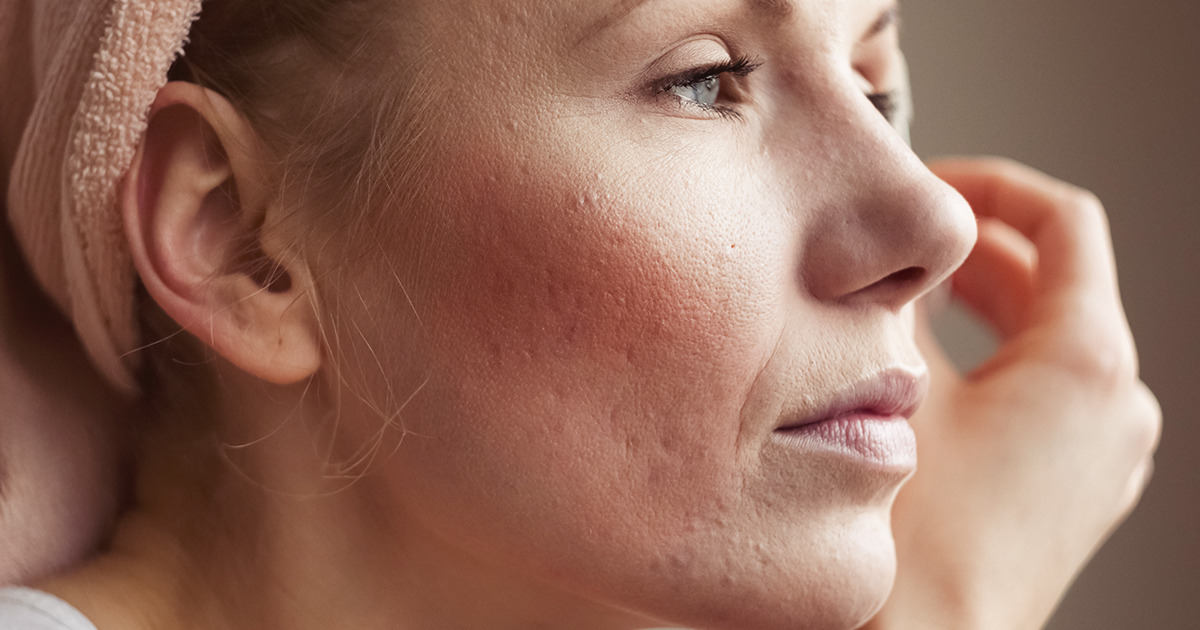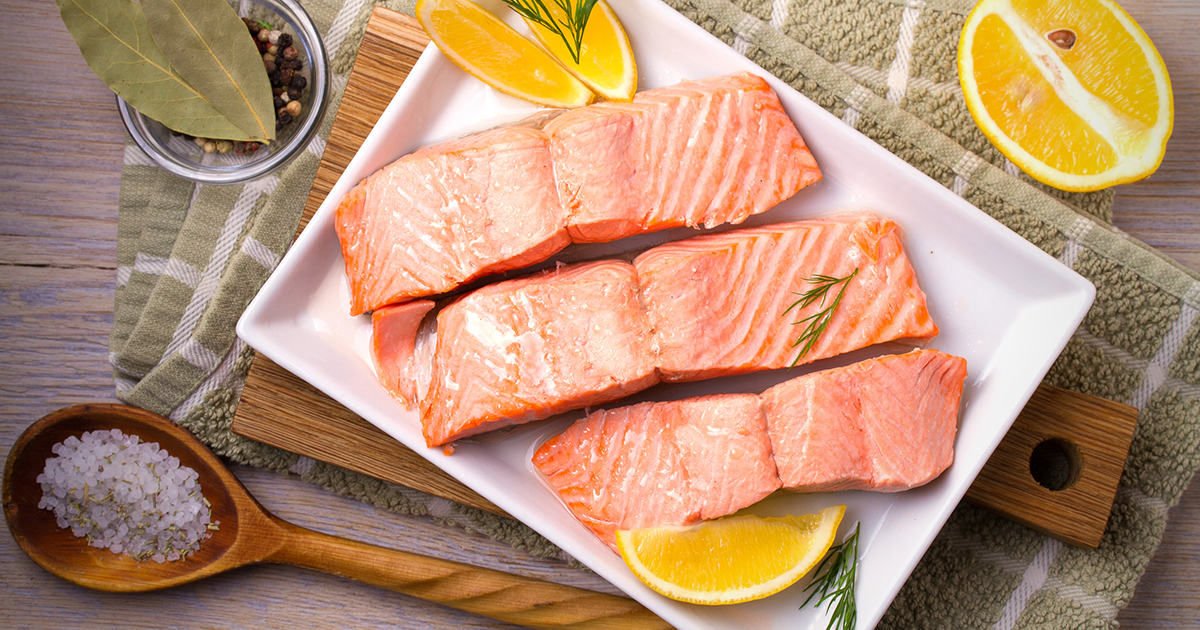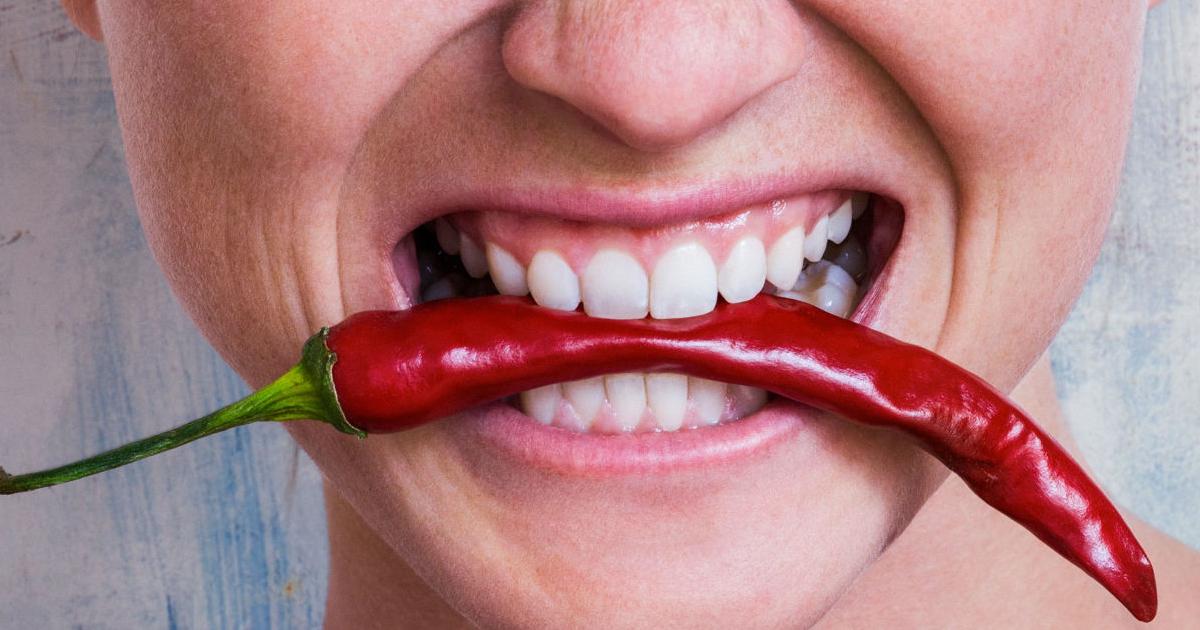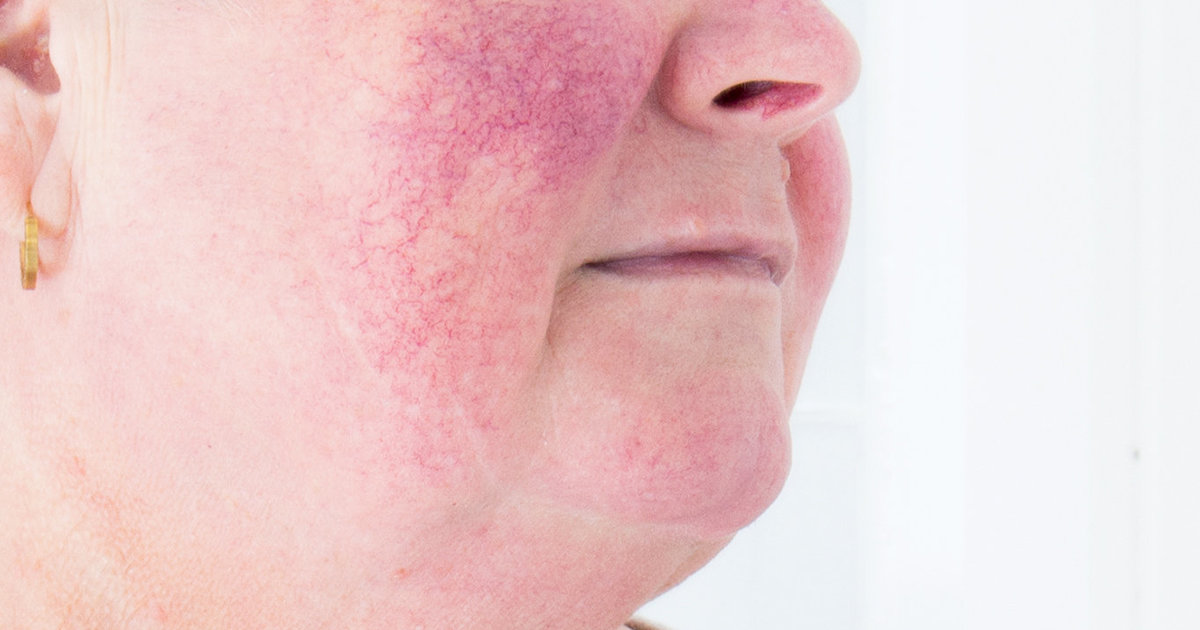Guide To The Rosacea Diet
Many conditions can be confusing. From what medications to use to what foods to eat, many individuals have different ideas regarding effective treatment methods. Rosacea is no different. However, with a little time and experimentation, patients should still be able to find something that will help them minimize or eliminate symptoms. Rosacea can be embarrassing and frustrating to be dealing with at any point in life. A very important facet to remember is how foods affect the body, particularly when medical conditions are in play, such as with rosacea. They can help reduce flare-ups and they can trigger flare-ups. If individuals can implement certain food changes in their diet, they will be able to manage most rosacea symptoms from a natural standpoint. This is not to say patients will not need medication, but it will certainly help.
What Is Rosacea?

Rosacea is a skin condition that causes the blood vessels in the face to become visible, resulting in reddened skin. It can also cause small and red pus-filled bumps to appear on the skin. These can make the skin feel tender and warm. The condition can also cause eye problems, like dryness, red eyelids, irritation, and swelling. One symptom of rosacea, that occurs mainly in men, is an enlarged nose characterized by thickened skin. Rosacea is sometimes misdiagnosed because it can be mistaken for an allergic reaction, acne, or another skin problem. Patients who suffer from rosacea can be afflicted for months before it will diminish or lessen. Although the condition can occur in anyone, it is most common in middle-aged fair-skinned women. Doctors do not know what causes rosacea, but they believe it is an inflammatory response in the body.
Learn about the foods to eat to reduce rosacea flare-ups now.
Foods To Reduce Flare-Ups

Some foods can reduce inflammation and help individuals keep a balanced immune system. It is also important to stay healthy overall and take care of the body. Some of the foods that can help reduce rosacea flare-ups include asparagus, berries, cauliflower, celery, coriander, cucumber, grapes, leafy greens, pumpkin, mango, turmeric, and zucchini. Other foods that help reduce inflammation include healthy fats like salmon, flax seeds, and ghee. If patients are trying to diminish the redness and soothe their eyes, they might want to try adding omega-3 fatty acids, flaxseed oil, omega-6 fatty acids, and zinc sulfate. Furthermore, there are foods that keep the gut full of good bacteria. It has been shown good bacteria may help with rosacea symptoms, including probiotics in low-fat yogurt, soymilk, beet juice, unsweetened pineapple juice, sauerkraut, kefir, and pickled vegetables. Prebiotics that are good for the gut include bananas, raw leeks, raw garlic, whole grains, kale, and lentils.
Keep reading to reveal the foods that can trigger rosacea flare-ups now.
Foods That Trigger Flare-Ups

Just like there are foods to reduce rosacea flare-ups, some foods trigger flare-ups. If patients are suffering from rosacea, they need to steer clear of these foods, which include refined sugars, white flour, sugary foods, fried foods, processed vegetable oils, food preservative, food additives, processed meat, artificial sweeteners, sugary juices, and carbonated drinks. And if this was not enough, patients need to make sure they limit or refrain from drinking alcohol. Alcohol, even a small amount, can trigger redness and flushing. Additionally, it is important to stay away from things that will raise the body's temperature, like tea, coffee, and hot chocolate. Spicy foods also worsen the symptoms of rosacea because they include capsaicin, which can activate pain receptors in the face. So individuals need to make sure they limit their consumption of foods like chili peppers, cayenne pepper, hot sauce, black pepper, and paprika.
Get the details on the other health benefits of the rosacea diet now.
Other Benefits Of The Diet

There are other benefits of the rosacea diet to consider. For instance, if patients cut out white bread, sugary foods, and carbonated drinks, they might feel healthier. Individuals might actually lose weight and get in better shape by eating healthier and avoiding many of the foods that will only cause rosacea symptoms to emerge. And with eating healthier, the body might work more efficiently. If individuals lose weight through this diet, they may also reduce their cholesterol and body mass index. This can put less stress on the heart, which can only be beneficial in the long run.
Continue for more information about the rosacea diet and how it impacts individuals now.
Final Takeaway Regarding The Diet

The rosacea diet may seem very restrictive, and it is very important not to cut entire food groups from one's diet. Individuals need all of the food groups to have a healthy body and let all of the systems in the body function properly. The final takeaway regarding the rosacea diet is it is a personal decision that may take some time to adjust to. It will also take time to figure out what food restrictions and additions work best for each person's body. Patients should make sure to consult their doctor before making any drastic changes. In fact, the recommendation is patients should slowly adopt the rosacea diet and not change everything all at once. This will lead to a greater chance of success.